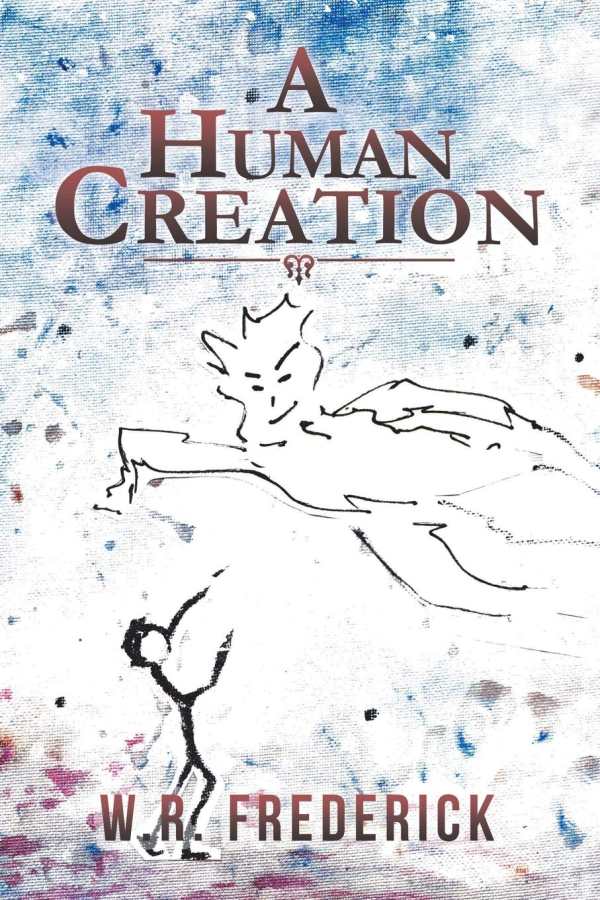A Human Creation
A Human Creation argues that God originated in the minds of humans.
W. R. Frederick’s philosophical exploration A Human Creation covers religion, works of science, and psychology to argue that God is the product of human consciousness.
The book draws on widespread reading in ancient history and argues that such surveys make it seem that God is a human invention. It moves from this personal conclusion toward a proof, examining the issue from several perspectives. It draws upon religion, Darwinism, brain chemistry, sociopolitics, and cosmology. Chapters on religion and Darwinism take up more than half of the book; they are developed in the most detail.
Rather than presenting original research or ideas, the book aims to synthesize the work of others in defense of its thesis. Numerous and lengthy excerpts make up a good share of its space; they are bridged by original text and interpretations. The quotes are not contextualized enough for it to be clear whether they are accurate representations of the work they were drawn from.
Each of the book’s five sections follows a pattern established in its first and longest chapter, which compares ancient world religions and states that they evolved independent of each other. It asserts that they reflect the knowledge and needs of non-modern people.
Each section rests on tautological arguments. Established facts are stated, followed by excerpts from outside sources to support the thesis; these are cited as a vast body of proof, though they can lead to differing conclusions. For example, that different religions believe in a supreme being, and that concepts of deities vary across religions, is presented as proof that no supreme being exists. The book is exhaustive in rounding up like-minded work, but its sources are selected from a narrow range of opinions. Counterarguments are either ignored or dismissed.
The writing is laden with digressions and dense academic language. Sentences that seem important dissolve when they’re unraveled, creating confusion as to what point was made. Conclusions are preached rather than demonstrated, and it becomes hard to maintain interest. The phrase “of course” is used to lend heft to murky or debatable assertions.
The book’s straw man scenarios stifle interest. Its chapter on Darwinism presumes that proving evolution true disproves the possibility of a higher being, and that science brought humanity to a higher level of civilization, though many scientists believe in both God and evolution. It presents civilization as an ever-upward phenomenon; such declarations are unconvincing.
A Human Creation argues that God originated in the minds of humans.
Reviewed by
Susan Waggoner
Disclosure: This article is not an endorsement, but a review. The publisher of this book provided free copies of the book and paid a small fee to have their book reviewed by a professional reviewer. Foreword Reviews and Clarion Reviews make no guarantee that the publisher will receive a positive review. Foreword Magazine, Inc. is disclosing this in accordance with the Federal Trade Commission’s 16 CFR, Part 255.

